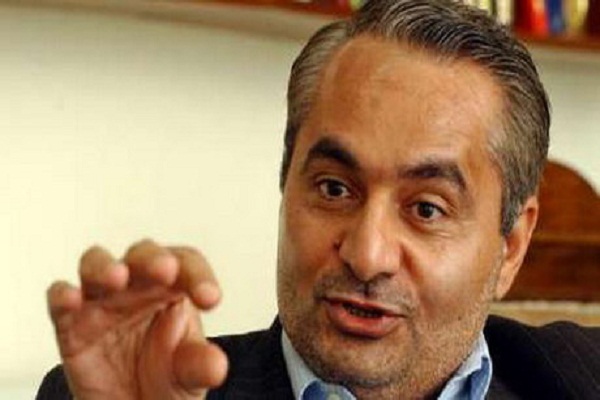Persian Gulf Arab States Paved Way for US Invasion of Iraq, Afghanistan

Seyed Hossein Mousavian made the remark in the Third Annual Abu Dhabi Strategic Debate in the United Arab Emirates’ capital city.
The debate took place on November 12-14, 2016, at the Emirates Palace in Abu Dhabi with the participation of 400 guests, including 300 personalities from Arab countries.
According to the organizers, it sought to "advance our understanding of future trends and the role they play in international politics, and to foster the development of actionable policy recommendations.”
During the debate, Mousavian, the only Iranian attending the event, rejected one of the participants’ claim that by invading Afghanistan and Iraq, the US paved the way for Iran’s dominance in the region.
"If you, the Arab (countries) of the Persian Gulf, had not supported the Iraqi invasion of Iran, Saddam would have not (later) attacked Kuwait,” he said in response. "And when you failed to avert Saddam’s invasion of Kuwait, it was you, Arabs, who invited the United States to attack Iraq to save Kuwait.”
Noting that 15 out of the 19 elements behind the September 11, 2001 attacks in the US were Saudis, he added, "It was again your (Arab countries’) nationals who provided the US with the pretext to attack Afghanistan. In fact, the Arab countries of the Persian Gulf that set the ground for US invasion of Afghanistan and Iraq.”
The US invaded Afghanistan in 2001 under the pretext of toppling the Taliban regime, claiming that the militants have refused to hand over Osama bin Laden, the leader of al-Qaeda.
The US also invaded Iraq in 2003 under the excuse of destroying alleged weapons of mass destruction (WMD) belonging to former dictator Saddam Hussein.
Many civilians, including women and children, have been killed as a result of these wars.
The US-led war in Afghanistan, with civilian and military casualties at record highs, has become the longest war in the US history.
Elsewhere in the debate, Mousavian rejected the so-called Iranian hegemony, saying Iran’s regional strategy is one of defense not hegemony, ISNA reported.
He noted that while members of the Persian Gulf Cooperation Council (PGCC) believe foreign powers should protect the security of the region, Iran believes that safeguarding the security of the region is upon regional countries and it should be ensured through joint cooperation.
In response to one of the participants’ suggestion that "Iran should leave Syria” for talks with PGCC countries, Mousavian said in that case, Iran can also set a precondition for talks and say Saudi Arabia should leave Bahrain and stop its aggression on Yemen.
Dismissing accusations against Hezbollah at the debate, Mousavian said Hezbollah was founded with Iran’s support to defend the territorial integrity of Lebanon against Israeli aggressions.
He went on to say that the threat of terrorism in the region has been spread by Saudi Arabia and Wahhabi and Salafi groups, noting that no Iranian national or member of Hezbollah resistance movement has been involved in terrorist attacks but acts of terrorism have been committed by Saudi-backed Daesh (ISIL or ISIS) and al-Qaeda.



